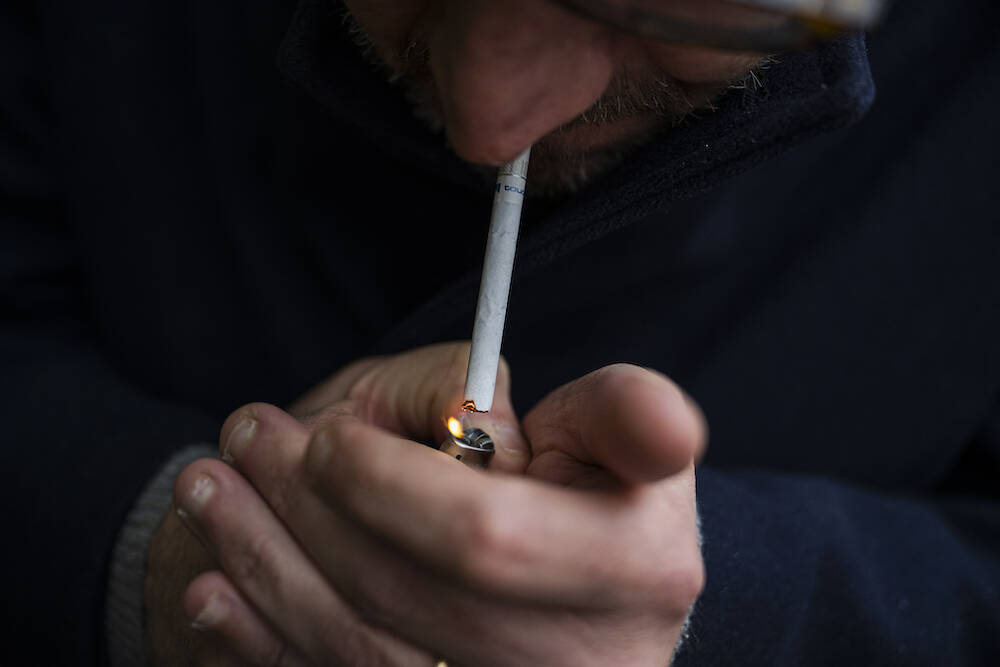Your doctor — the healer of ailments, the all-knowing, the pillar of confidence, the adviser who reminds us to exercise five days a week and to eat a balanced diet. Yet, amid the stethoscopes and white coats, a truth lurks — some doctors themselves indulge in a habit that directly contradicts their very profession: smoking.
It is a paradox as old as medicine itself, a truth stranger than fiction. It highlights not only the pervasive grip of nicotine addiction, but also the human vulnerabilities that medical professionals share with their patients.
Perhaps the most common advice that physicians give out freely pertains to the dangers of smoking and the various methods for controlling the urge to smoke, and then finally quitting the habit.
During their medical training, doctors are educated by their professors (some of whom are themselves smokers) regarding the various effects of smoking — there are about 4,000 chemicals that make up cigarette smoke and, of that number, 60 are carcinogenic. Doctors also remember that it is the most common preventable agent for cancer worldwide and that about 8 million people die prematurely every year because of smoking.
Yet some doctors, like every other smoker, find it difficult to quit.
Some of my patients often tell me about a doctor they know who smokes and is, in their opinion, in fairly good health.
Doctors are human too. They possess all the drives and weaknesses that every other person has. They cope with long hours in their work, face immense pressure owing to the nature of their work, and navigate through human misery on a daily basis. The cigarette, with its illusionary anti-stress properties, seems like a temporary escape hatch from life’s pressures, but smoking is comparable to extinguishing a fire with gasoline.
When nicotine enters the body through any route, it causes a transient release of endorphins in the brain resulting in a brief sense of euphoria. It results in an increase in levels of dopamine in the brain reward circuits. Repeated exposure leads to a growth in brain tolerance levels and leads to addiction, resulting in withdrawal symptoms if smokers are denied their cigarettes.
The long queue outside the airport smoking area after a long-haul flight, the immediate relief of a puff after iftar, and the puffs taken during the intermission of movies are all indications of addiction.
Dr. Sigmund Freud, the father of psychoanalysis, was a heavy smoker himself and eventually succumbed to oral cancer. Even during his treatment and surgeries related to his illness, he refused to quit the habit.
This applies to all others working in a hospital, including nurses, paramedics and administrative staff. Generally, hospitals are no-smoking areas and there are no dedicated smoking rooms (unlike in some other offices and corporations). Smokers have to find dark alleys or secluded areas outside the facility where they can indulge their habit because they want to hide from the keen eyes of superiors or patients, they take extra effort to conceal themselves.
Enough of the irony. It is time for doctors to walk the walk. Here is some friendly advice from a non-smoking colleague.
Remember your oath (key elements at least): We were inspired to help people live healthier lives and we should be leading by example. Any patient deserves a doctor who embodies the principles he preaches.
Think of it as preventive medicine for oneself: Instead of a cigarette break, take a brisk walk or do something that will take your mind away from the urge to smoke. It is a win-win!
Seek support: There is no shame in admitting that we need help. Talk to a trusted colleague, join a stop-smoking program, or consult a therapist. After all, even doctors can benefit from a second opinion, especially when it comes to their own well-being.
Find your trigger: Identify the situations that make you crave a cigarette. Feeling overwhelmed? Grab a stress ball instead of a lighter. Taking a coffee break? Swap the nicotine for a healthy snack. Remember, it is all about creating new, healthier coping mechanisms.
A smoke-free future for doctors: Let us be the change we want to see in the world. We doctors preach healthy living, so let us practice it too. Who knows, maybe by putting down the cigarettes, we will inspire not just our patients, but also our colleagues to embrace a truly smoke-free life? After all, wouldn’t a world without doctor-smokers be a much healthier place? Imagine a hospital break room filled with laughter, yoga poses, and maybe even a healthy snack.
• Dr. Jemshith Ahmed, an internal medicine specialist, is vice president for strategic planning at Abeer Medical Group.











